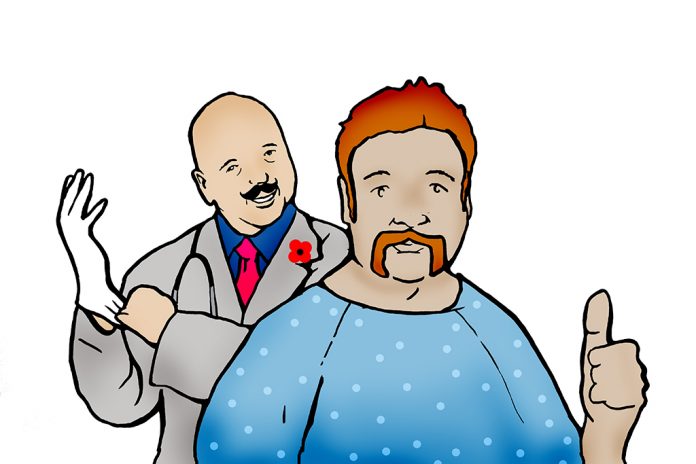In the age of Netflix documentaries, Twitter journalism, and Philosophy 100 being a bachelor of arts requirement, I like to believe that our generation is truly discerning of the practices and traditions we encounter, and can examine them critically. We are fully aware that things that might look good and make us feel helpful aren’t always doing the work and making the difference we think they are. The “pinkification” of breast cancer, the failures of highly-regarded charities such as the American Red Cross and their work in Haiti, or the UN Human Rights Council and the politics it puts before its mandate — these have all opened our eyes to how good intentions might not always be good enough.
In that vein of thought, I think it is about time we look at the effects of “NoShaveNovember” and mustache activism. Now, it’s going to be really easy to write some of this off as a hypercritical curmudgeon looking to hit a word count, but I urge you to keep an open mind. A sentiment of “I’ve done my part” has always been in every movement, it just might be more apparent now that we can broadcast our actions and words online so selectively. I’m not unrealistic, I understand the importance of raising awareness and getting conversations started; I just also have a firm belief that at a certain point you reach a plateau and must translate your energy to real action. Meme-y campaigns that have people talking about things not widely well understood (like suicide rates in the military through a push-up challenge) or raise actual money (the ALS ice bucket challenge had this early on) are things that do this right. Yet you have to admit, that at this point there are diminishing returns in trying to get people aware that breast and prostate cancer are things we should be looking out for and concerned about. And patting ourselves on the back for not shaving isn’t really helping anyone. The next step in the campaign should be compelling people to actually get tested, but we’ll come back to this in a moment.
There is something to be said about the act of growing a mustache instilling a sense of solidarity with people who are at risk or suffer from prostate cancer. There might be merit to this, but the way we display that solidarity isn’t perfect. First off is the understandable fact, given the nature of prostate cancer, that it is rooted in secondary male sexual characteristics that perpetuate antiquated and potentially damaging definitions of masculinity and what being a man is. Secondly, it’s too damn easy for some of us, and I think any sort of solidarity or display of care should have a bit more weight to it.
Look, let’s just try and think outside of the box and see how we can best help this issue. All traditions should be routinely examined once in awhile, nothing necessarily has to change if it’s still working right, but things can always be done better and with more effect. If we were to assume (and I think this is most definitely the case) that most young men are aware they are at risk of cancer, then let’s work on how we get them to take it seriously and actually get tested. One obstacle to overcome is the perception that if you find out you do have it and opt to get a surgery done, that the effects may leave you impotent. I’m not a doctor, so I don’t know if the rates of this have gone down, but it’s still worth challenging that worry that places more value on sex than actually living longer. Perhaps a more immediate hurdle, however, is the test itself, which requires a physical examination of the rectum.
This can often be a hurdle as we live in a culture with such warped and ugly views on manhood and sexuality. Men who should be getting tested might be squeamish or have inner thoughts that cloud the operation in homophobia, as compared to women, men don’t have as many checkups that are internal. Perhaps a solution would be a campaign, maybe in November, that normalizes the procedure and lets at-risk people proceed without shame. Let’s start to normalize things being around people’s butts. Foursquare check-ins and selfies of the procedure in the doctor’s office, a latex glove Snapchat filter, or catchy slogans like “Anal Play isn’t Gay, and even if it was that is A-Okay.”
Let’s get to the bottom of this, and move one step closer to the Star Trek utopia free of -isms, poverty, and disease that humanity might deserve.


